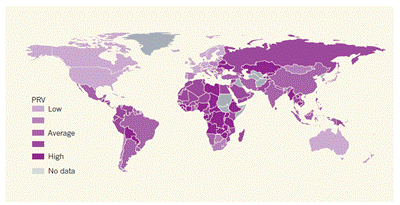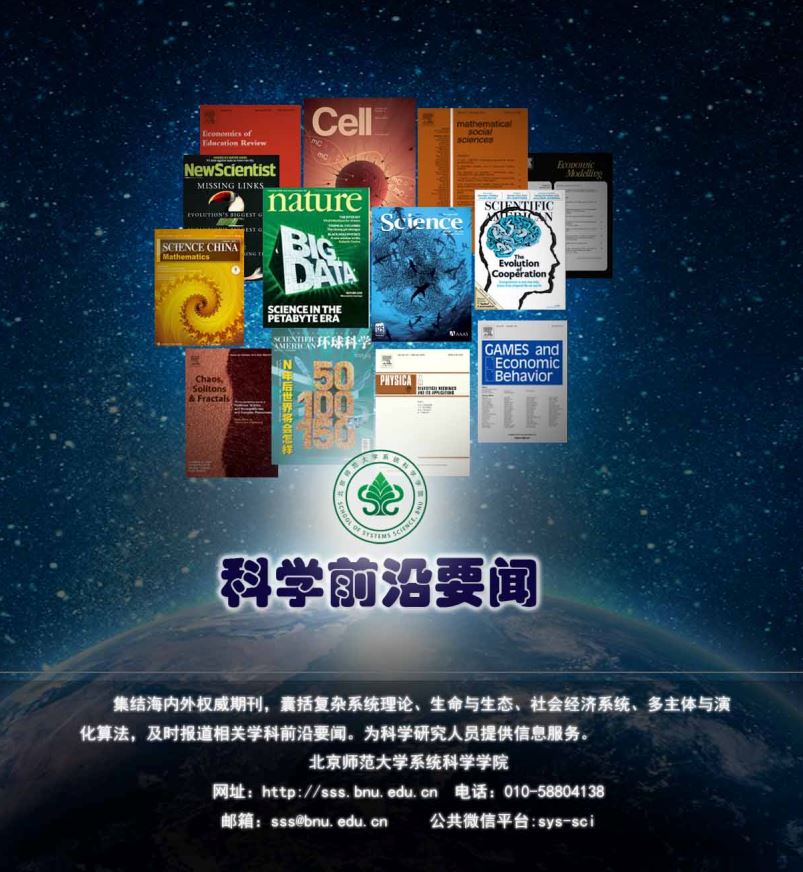[要闻] 科学前沿要闻-010 2016-4-19
Behavior Economics: Corruption corrupts
NEWS &VIEWS RESEARCH
(Gächter, S. & Schulz, J. F. Nature 531, 496–499 (2016). )
推荐人:战笑然
作者表明,对于一个国家普遍存在的违法行为,包括逃税、腐败和政治欺诈,更趋向于获得额外的金钱或利益。专家们表示目前人们倾向于违背道德规范,这是由于受环境的直接影响造成的。但直到现在为止,腐败社会规范在多大程度上影响与塑造人们内在的诚实标准仍然是未知的。作者分析了159个国家的普遍违反行为(prevalence of rule violations,简称PRV),研究了23个具有代表性的国家,并通过股子游戏说明了具有较高PRV值的国家大部分都分布在合理的不诚实的基准线上,并没有出现较高水平的不诚实情况,这说明曝光不诚实的现象可以提升人们的“诚信”,同时指出来自多腐败国家的人会更倾向于欺骗。文章末尾提出了几个有趣的问题:在PRV值下降的国家中,人们会变得诚信吗?当人们不仅局限于自己国家,在出过留学,旅游等时受到其他国家的影响又会发生什么变化?最后文章提出:经济实验可以帮助解决全球性的问题。
A cross-cultural experiment involving thousands of people worldwide shows that the prevalence of rule violations in a society, such as tax evasion and fraudulent politics, is detrimental to individuals’ intrinsic honesty.
Does society affect intrinsic moral values? In this issue, Gächter and Schulz1 (page 496) address this question with an experiment involving 2,568 participants in 23 countries. The authors show that a country’s prevalence of rule violations, which for this study included tax evasion, corruption and political fraud, is positively associated with the tendency for residents of that country to lie for a small amount of extra cash. The finding rejects the idea that intrinsic honesty levels are similar in countries around the globe, and suggests that corruption corrupts.
Experimental research on human moral behaviour, for which intrinsic honesty is a proxy, is not overly concerned with how people ‘should’ behave. Instead, economists, psychologists and other researchers are descriptively mapping the situations in which people are likely to violate moral rules. The goal of such attempts is to craft useful interventions for encouraging moral conduct.

Figure 1 | Rule violations across the globe. Gächter and Schulz1 developed a ‘prevalence of rule violations’ (PRV) index on the basis of a country’s political democracy, illicit economic activity and levels of corruption. They assigned a PRV score to 159 countries, and investigated the effect of the relative prevalence of societal rule violations on individuals’ honesty in 23 of those countries.
Participants rolled a standard six-sided dice to determine their earnings in the experiment3. Operating in private, they rolled the dice, peeked at the outcome, then rolled and peeked a second time, and were asked to report the outcome of the first roll only. Higher reported numbers translated to higher earnings, with the exception of reporting a six, which meant getting nothing.
Because rolls were done in private, participants could easily misreport the outcome (lie) to increase their earnings. Although the task does not allow individual honesty or dishonesty to be pinpointed, the reports can be used to assess the degree and pattern of lying at the country level. In an honest country, given a large enough sample and a fair dice, the distribution of reported outcomes should be flat. The authors refer to this as the full-honesty benchmark. In a country in which people maximize profit at all costs, even by lying, only the most profitable value for the dice roll (five) should be reported — the full-dishonesty benchmark. Many people, however, like to feel moral even when lying, and thus prefer to shuffle facts rather than invent them. That is, people often report the higher observed outcome of the two rolls4, not the value that appears on the first roll, as the rules dictate — the justified-dishonesty benchmark.
Gächter and Schulz found that participants were neither fully honest nor fully dishonest. Reported outcomes clustered around the justified-dishonesty benchmark, especially in countries with a high PRV score. This suggests that high exposure to rule violations turns people into truth stretchers, but not brazen liars. The authors also identify a positive cor-relation between a country’s PRV score and participants’ earnings in the task, suggesting that participants from more-corrupt countries lied more than those from less-corrupt ones. Given that participants were not involved in activities that could affect their country’s score on the PRV index, the probable causal path is from society-level rule violations to individual-level dishonesty.



